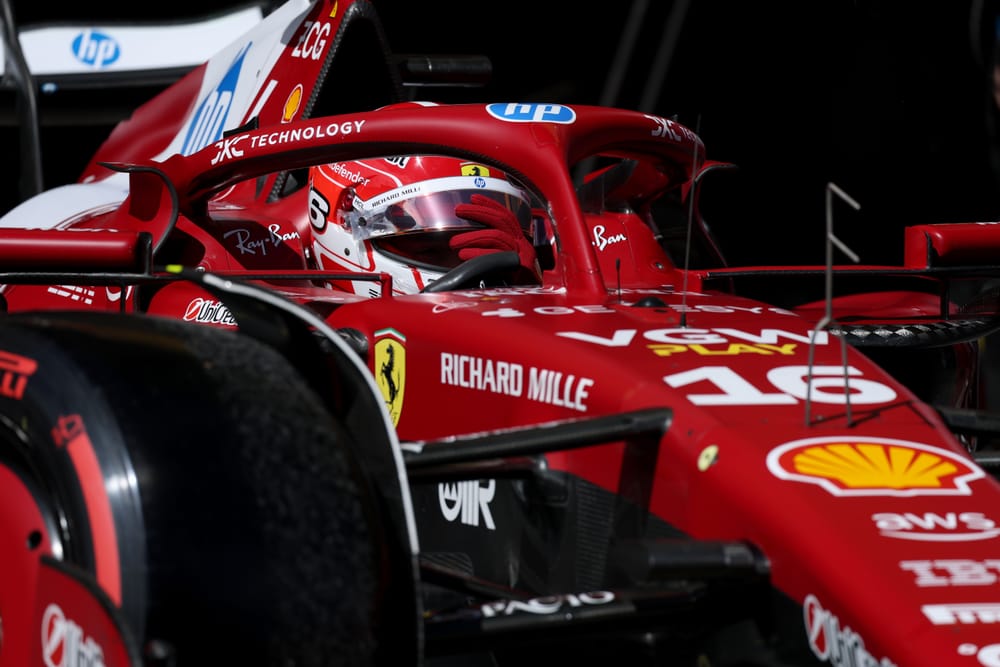Charles Leclerc's verdict on Ferrari's disappointing Formula 1 season is only getting more bleak as it gets nearer the end - and he's even starting to sound worried for next year and beyond, too.
It's bad enough for Leclerc that Ferrari is not fighting for grand prix wins very often, if at all, after it fought for the constructors' title last season and had big expectations for 2025.
What's even worse for him is that he reckons Ferrari hasn't even seen progression throughout the year relative to the front of the grid.
He feels Ferrari's had the same deficit since the start, whereas now Red Bull and even Mercedes are getting to McLaren's level. And that's leaving Leclerc and team-mate Lewis Hamilton as "passengers" as they cannot do anything to fight for better positions.
Leclerc's feeling is largely backed up by the data.
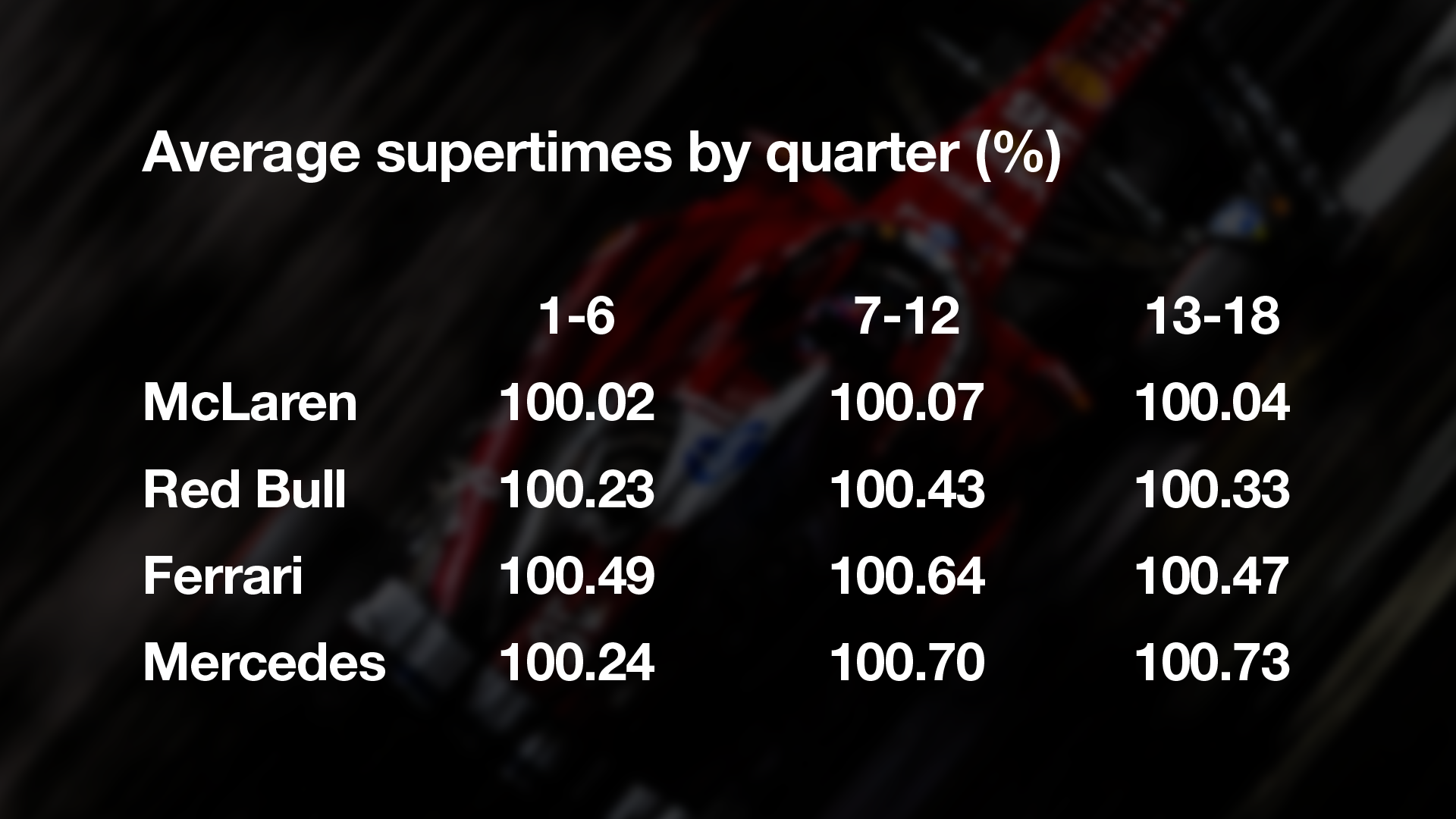
Ferrari made a small improvement in the third quarter of the season in terms of one-lap pace relative to McLaren, but all that's really done is bring it back to where it was at the start of the year.
Given there have been major car upgrades through the year, some aimed at curing weaknesses supposedly hiding Ferrari's true potential, that shouldn't be a surprise. The fact it hasn't been able to get much closer though, is a big blow, and has clearly tested Leclerc's patience.
If you take the last four races since the summer break, it looks more bleak. The Red Bull surge Leclerc has mentioned is very clearly visible, although Mercedes has overachieved of late with a couple of more favourable races in Baku and its race-winning Singapore weekend.
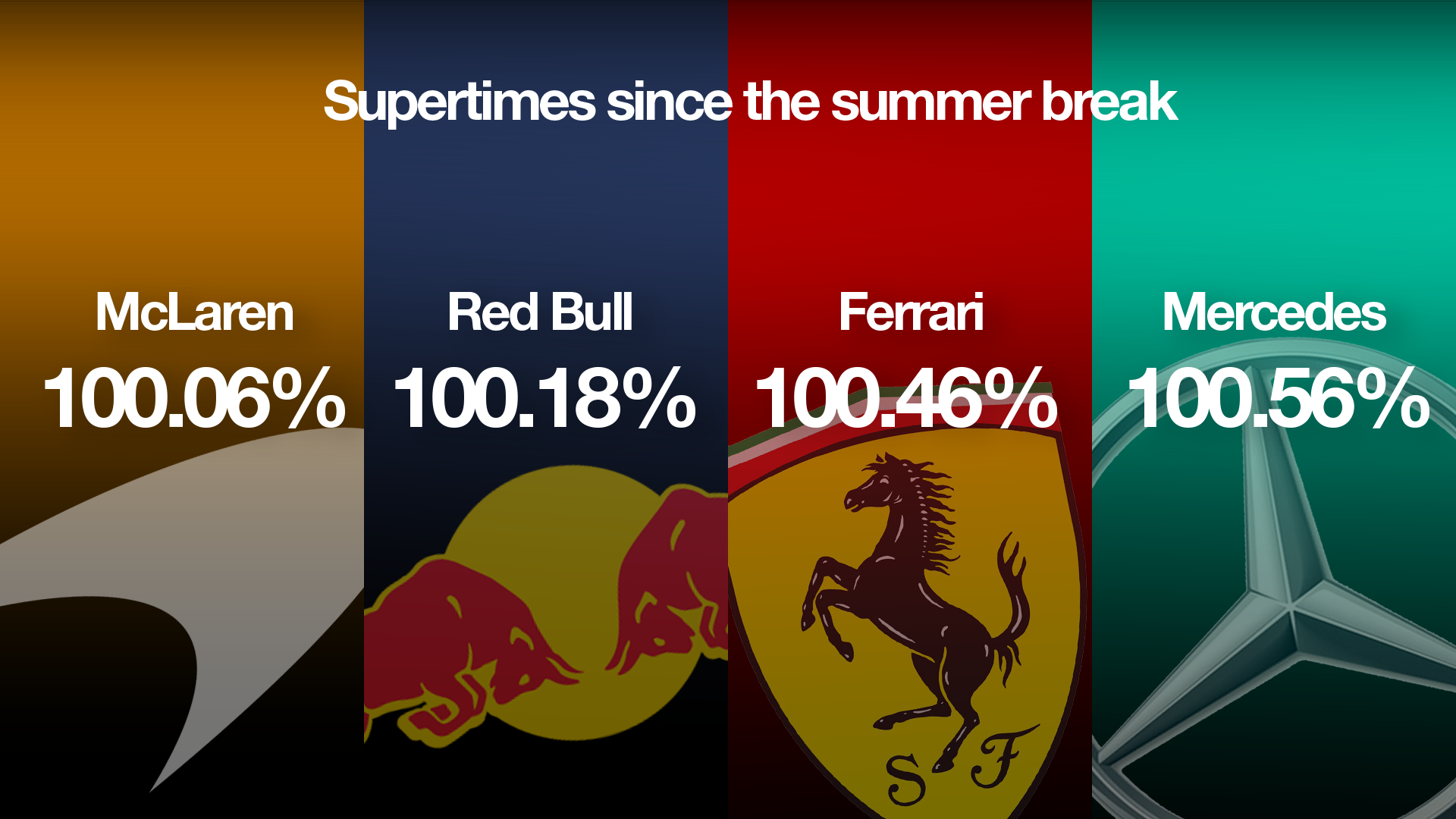
Unsurprisingly, that's translated into poor Ferrari form - although its results are even worse than what should be possible with the pace of the car.
A five-race run without a podium includes Leclerc dropping out of win contention in Hungary before the summer break, having overachieved there against the McLarens from pole and worried afterwards he had lost his only real chance of a victory this year.
Leclerc will not take any consolation for being proven right, given he's not gone on the podium since then, let alone fought for a win.
Unfortunately that's left him glumly predicting "there won't be anything special" over the rest of the year for Ferrari - which, having had title-winning aspirations, looks like it might instead have its first winless season of the Fred Vasseur era.
And Leclerc's alarm bells don't end with 2025, either.
Leclerc's 2026 warning
Ben Anderson
Leclerc's evident frustration with Ferrari's uncompetitive situation doesn't just extend to recent grands prix where he expected to be particularly strong and wasn't.
While he believes F1's huge rules overhaul next year is a big opportunity for Ferrari to turn the situation around, it was at least slightly caveated by the unprompted concern about what might happen if Ferrari gets it wrong to begin with.
"I really hope we start '26 on the right foot because otherwise it's going to be a tough couple of years," Leclerc said.
It's hard not to hear that and wonder why that needed to be said, and whether a little bit of doubt has crept into Leclerc's mind about Ferrari's ability to nail the new rules.
There is a growing sense that Leclerc is beginning to see history repeating itself: that he's maybe living through yet another Ferrari doom cycle that could have massive implications for 2026 and beyond.
As a legacy of the secret deal it struck with the FIA over its suspiciously powerful 2019 engine, Ferrari logically sacrificed the COVID seasons of 2020 and 2021 to focus on the all-new ground-effect regulations of 2022.
That worked at first. Ferrari won races again, and Leclerc looked like a title contender early on, but faded as Ferrari's poor execution and weak development blunted Leclerc's challenge.
He's since seen his team overreach in 2023, building a horribly peaky car that destroyed its tyres, then almost the reverse of that in 2024 when, but for a rushed mid-season upgrade that took too long to reverse engineer, Ferrari might have won the constructors' title that was ultimately narrowly lost to McLaren.
But once again he finds himself asking: where is the sustained progress? The same problems that have limited Ferrari since the start of the season are still there and that old problem of not being able to develop a car in-season still seems to be a significant weakness.
This is partly because Ferrari decided in mid-June to switch off 2025 development, in part because it knew by then it wouldn't realistically be in the hunt for a championship McLaren has dominated (having already sealed the constructors' title).
That shows good foresight in the sense it should help Ferrari start 2026 strongly. But if the tools and methodologies being used to get ahead for 2026 are the same ones that have made the 2025 Ferrari such a disappointment to Leclerc, perhaps Ferrari is missing a trick. If it has misjudged the situation, Leclerc's fear of a baked-in disadvantage for several more years could be realised quite quickly.
He says he's still looking forward to 2026, and it surely can't come soon enough given how badly Ferrari's 2025 season has tailed off, but you sense the implicit trust he has in Ferrari to get things right is a bit shaken.
When Leclerc signed a big contract extension back in January 2024, which is reported to commit him to Ferrari until the end of 2029, he wouldn't have been expecting to reach the end of a full decade with the team without winning a world championship.
But if Ferrari messes up again at the start of 2026 and shows the sort of wayward car development that has undermined it so badly in recent seasons, then that's exactly the fate that likely awaits him.
How good has Leclerc been?
Edd Straw
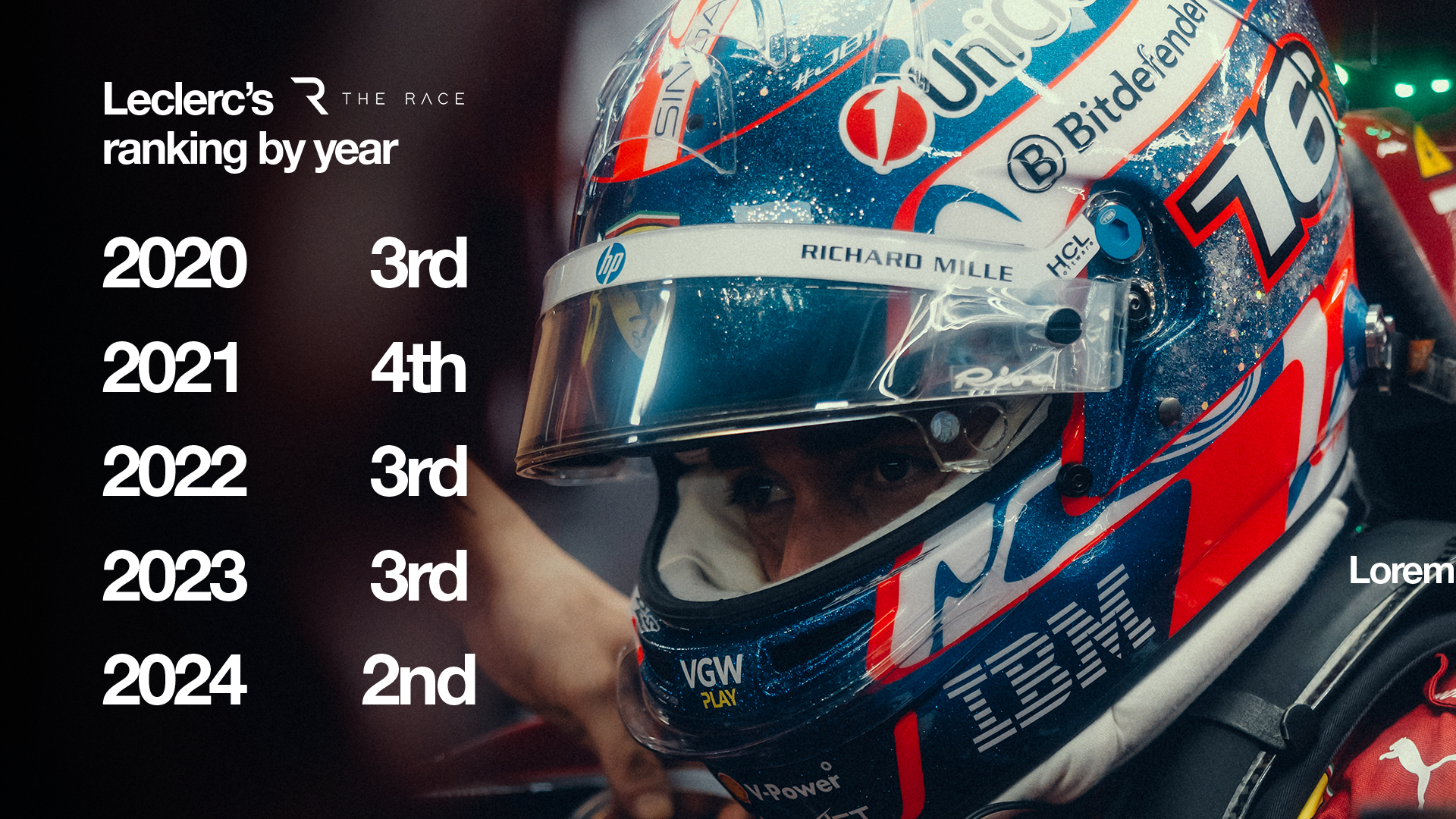
Despite Ferrari's difficulties, Leclerc believes his own 2025 season has still been very good. He's been in the top four of The Race's annual driver rankings in each of the previous five seasons, last year being his highest place yet in second.
But with a couple of wobbles by his own sky-high standards of late, it's worth assessing if this year has been so strong.
The first measure is performance compared to your team-mate. That's a battle Leclerc's won comprehensively as, although Hamilton produced Ferrari's best moment of the year by winning the China sprint from pole position, Leclerc has had the advantage across the grands prix themselves by all performance metrics.
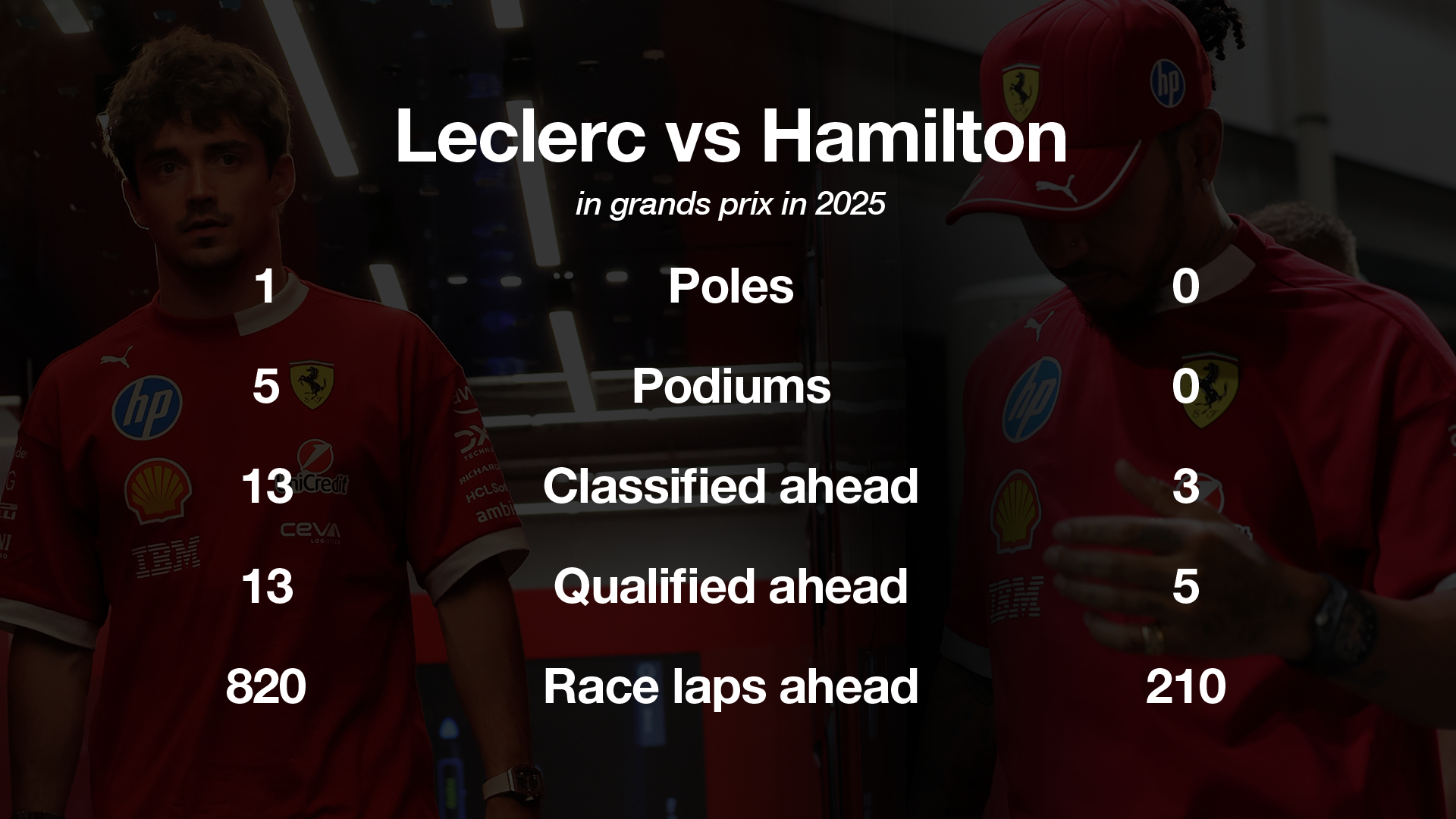
Hamilton's well-documented struggles adapting to Ferrari mean this is of limited value as a measure of Leclerc's form. But as Hamilton's performances have improved lately, Leclerc has still usually been the stronger driver.
In terms of Leclerc himself, the story of the early part of the season was what he described as "extreme" set-up experiments. This was a direction he decided on early in the year and that worked on across several events, partly founded on mitigating understeer by making the car more unstable and tricky to drive.
He first felt the benefits of this at round three in Japan, getting the most out of the car on his way to fourth. Leclerc also excelled in round five in Saudi Arabia by finishing third - one of two occasions, along with Belgium, where he was ranked top of our post-weekend driver rankings.
Aside from crashing out of the Miami sprint before it even started while on his way to the grid in the wet, and two so-so opening weekends, the first half of the season was impressive.
Round 13 at Silverstone was a low point, berating himself for underachieving in qualifying then having a nightmare in the race after a gamble on slicks - colliding with old team-mate Carlos Sainz on his way to a miserable 14th place.
However, Leclerc soon picked up again with an outstanding third place at Spa. This was at a point in the season when Ferrari introduced rear suspension modifications that Leclerc long hoped would cure weaknesses in the car. And although the effect wasn't what was hoped for, Leclerc still did well personally.
But it was in the most recent street events in Azerbaijan and Singapore - two tracks where he's historically excelled and that he describes as among his favourites - that his season took a turn for the worse.
He crashed in Q3 in Baku, recovering to ninth, then had a tough time in Singapore where he was outpaced by Hamilton in qualifying. He finished ahead, but it wasn't Leclerc's most convincing performance.
Still, while Leclerc has had three disappointing weekends - Silverstone, Baku and Singapore - across the past seven events, overall his performance level has still been good this year.
And there's obviously no doubt that it's the car and team, not the driver, that's the problem.
Anything to salvage in 2025?
Leclerc's hopes for Ferrari ending the year on a high are fading, but it's a matter of urgency that Ferrari finds some form - and not just to keep Leclerc happy.
Apart from having a car that just isn't as competitive as its rivals often enough, Ferrari seems to have regressed in how it runs it.
There's no excuse for Ferrari scoring so few points compared to the other top teams of late - just 50 in five races compared to 98 for Red Bull, 105 for Mercedes, and 134 for constructors' champion McLaren.
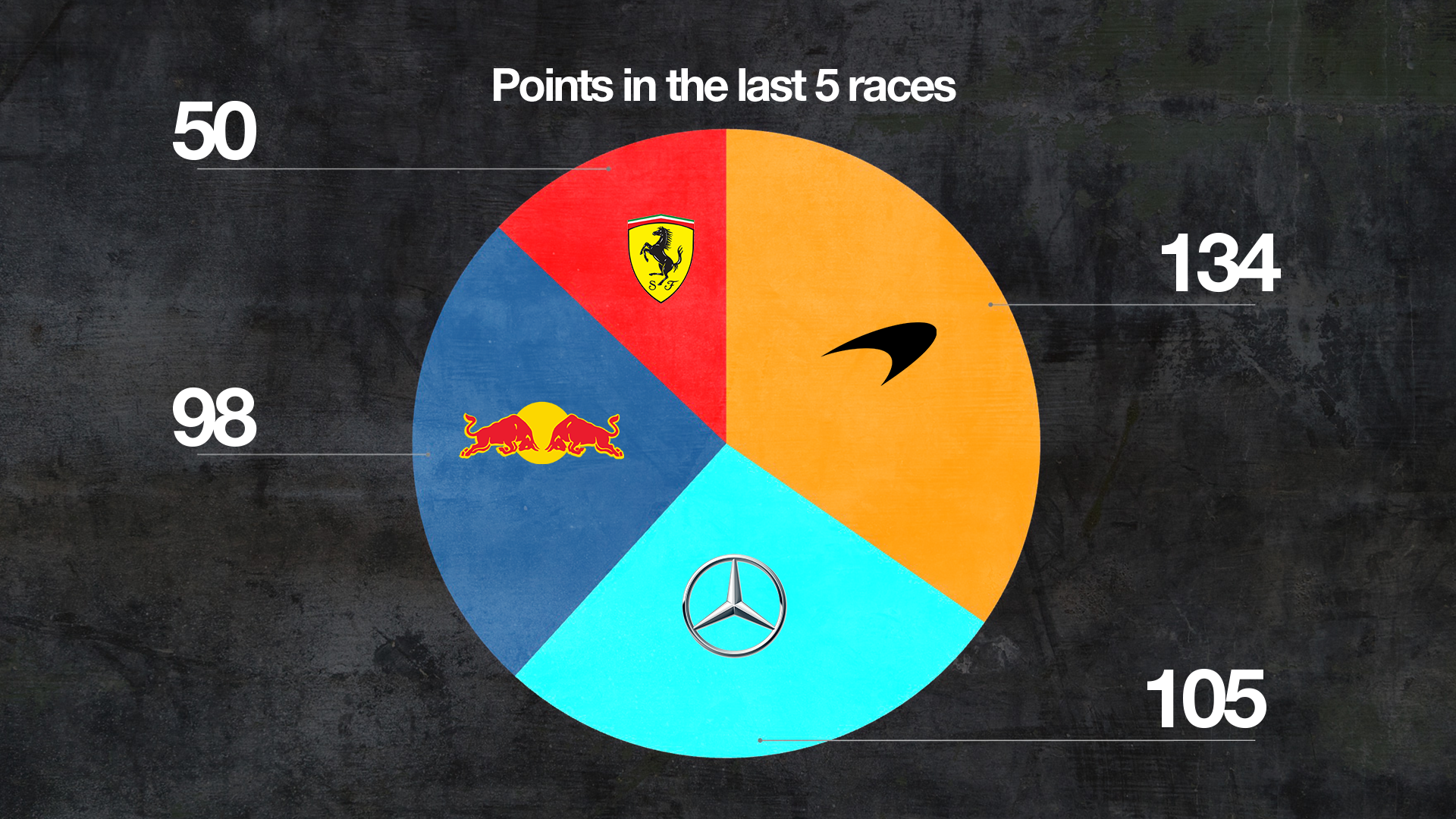
Trajectory is important in F1, and Ferrari's is worrying - and not just over the short-term. There were clear signs of Vasseur's Ferrari becoming a more robust racing team over the last two years but this season has had too many setbacks of varying proportions.
Most recently in Singapore, a brake management problem emerged after just a few laps on both cars and meant Ferrari spent "95%" of the race, according to Vasseur, managing brake temperatures and not running at its full pace. When Hamilton did late on, his front left brake failed.
And as that followed Baku, where Ferrari was fast in practice then had a poor qualifying, Vasseur called it "mega frustrating" to have now had two races in a row where the performance potential of the car was clearly above what its mediocre results suggested.
Ferrari seems at risk of losing its way and that might partly be driven by having two emotional drivers who are more prone than most top-liners to gambling on set-up just to see if it works.
In Singapore, for example, Leclerc also admitted he did something "a little bit stupid" by adding a lot more front wing in Q3 after being frustrated by the car balance being so understeery all weekend.
That's at least a hint of desperation from Leclerc and Ferrari - which should be reining in its driver and focusing on getting the most out of the car it's got, not trying Hail Marys.
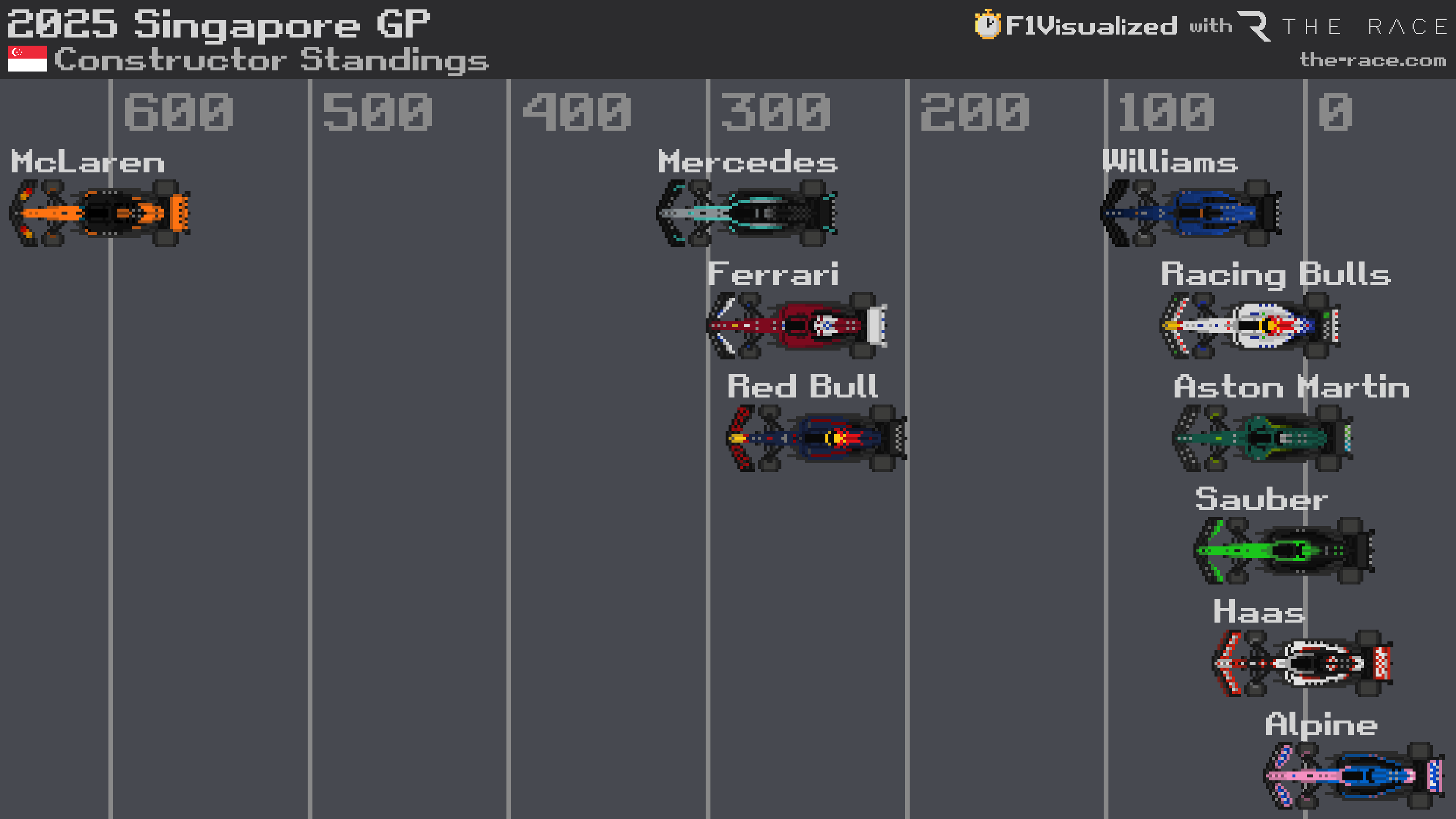
It would be wrong to justify this by arguing 'what has Ferrari got to lose?', too. It's still in a fight for second in the constructors' championship, even though it has been jumped by Mercedes in the last two events and Red Bull's in the mix as well even as a Max Verstappen one-man band.
Ending the year failing to get the most out of the car stands Ferrari in bad stead just as much as its underwhelming development - and won't do much for restoring Leclerc's shaken confidence.


